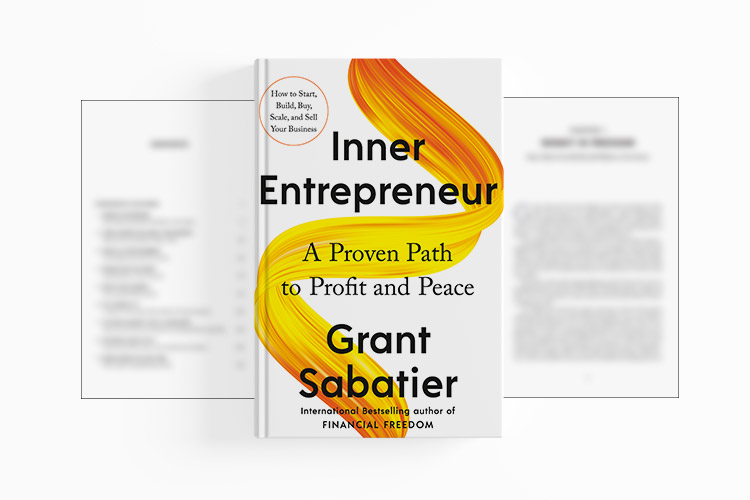Setting goals is essential to creating the life you want, but there’s often a disconnect between what we want to accomplish and the steps we must take to accomplish it.
Traditional goal setting often fails because the goal is too vague, too big, or we don’t fully understand what we need to do to attain it.
We may take steps we think will lead us to our goal, but when we lack information or fail to see quick results, we may give up or get distracted by things that move us in the wrong direction.
Part of the problem is unlimited choice.
When I first started my financial independence journey, I was overwhelmed by the choices I had to make to reach my goal of becoming a millionaire by the time I turned 30.
I eventually realized my goal through a combination of trial and error and learning as much as I could about personal finance and investing so I could make the most informed decisions possible.
It wasn’t super efficient, but it worked because I took action every day and corrected errors quickly when I needed to. As soon as I realized something wasn’t going to help me save $1 million, I stopped doing it.
Over time, I started to understand what worked and what didn’t so I didn’t need to waste time trying the wrong things in the first place.
I also learned my limits so I could filter out the things that might work but would force me to do something I didn’t want to do or would compromise my quality of life.
Now I take a different approach. I work backward.
Instead of setting a goal and figuring out what next action I need to take, I set a goal and reverse engineer the way to achieve it. This makes it easier to figure out exactly what I need to do and in what order.
Think of it like trying to solve a maze puzzle. There is only one solution, but if you start at the beginning, there is no way to know which of the many turns you can make will lead you to the end.
But if you start at the end, you can easily find the route that leads you to the beginning.
There are four things you can do to reverse engineer your goals:
1. Be as specific about your goal as possible
If you want to retire by 30, you need to know exactly how much money you need to save in order to do so.
That amount will change depending on a variety of factors: where you live, what lifestyle you want, whether you want to have kids, whether you want to stop working completely, what hobbies you want to pursue, etc.
The more specific you can be about what you want your life to look like, the easier it is to know what steps you need to take to get there.
A more specific goal is also more motivating because you can more easily visualize what your future will look like and get excited by what you see. It also makes it significantly easier to strategize.
2. Give yourself a deadline
I have a hard time thinking beyond 5 years, so I set big goals in 5 year increments. I became a millionaire within 5 years. I started and sold Millennial Money 5 years after that.
After I achieved that goal, I set up my holding company MMG Media Group with the express goal of acquiring and growing websites and selling them for profit within the next 5 years.
This timeline allows me to stay motivated and focused without burning out. It’s long enough to accomplish what I need and short enough that I can make predictions using the information I have today.
Your time horizon will shift depending on your goal and your limits. But having a deadline in mind will keep you focused.
3. Know your limits
Knowing and honoring what you want and don’t want out of life simplifies decision-making by reducing the number of options available to you.
I’ve written before about freedom only existing within limits.
I don’t like to travel for work, manage employees or take money from outside investors. This limits the ways in which I can grow my company but makes it easier for me to figure out what I can do.
It also makes my life better because I’m not doing things that stress me out and add unnecessary weight to my life. This keeps me from burning out like I used to.
Maybe you don’t want to work more than 40 hours a week, want the flexibility of working remotely, or prefer to work behind the scenes instead of having to handle clients or customers.
When you honor your limits, your goal becomes more sustainable because you build your business to support your life, not the other way around.
4. Take action to improve your intuition
As I wrote about in the last newsletter, the main thing that separates people who accomplish big goals and those that don’t is their ability to take consistent, meaningful action.
You will rarely have perfect information, and the only way to truly know what will happen is to make a choice and see how it plays out.
The more you do this, the easier it becomes. You learn more about what works and you train your intuition to fill in the information gaps you’re left with.
You begin to see patterns and opportunities that were previously invisible.
Every day new tools appear to increase the number of opportunities available to us and the paths to get there.
Setting a goal in this environment can be both motivating and paralyzing. Things are moving so fast that our brains can hardly keep up.
It’s easy to see how we arrive at a destination once we get there, but I’ve found trying to reverse engineer where I want to be particularly powerful in my own life.
Grant Sabatier writes about money, mindfulness, and financial independence – all with the ultimate goal of helping you build a life you love.
His story and ideas have been featured in The New York Times, Washington Post, NPR, CNBC, Business Insider, and many other places.




